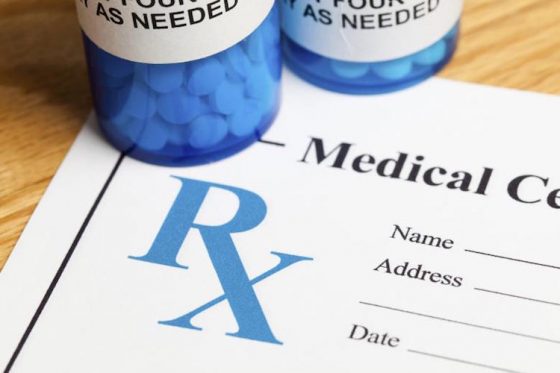This is not medical advice - talk to a psychiatrist
I am not a psychiatrist or a medical doctor. This is not medical advice and is not a recommendation.
What are medications that some people use for public speaking and social anxiety?
Because public speaking anxiety is a type of social anxiety, this article covers both.
Key Take Away
A psychiatrist will assess your specific situation and will develop a treatment plan based on your needs.
For public speaking phobia, there are the "take as needed" meds, for example, a combination of Alprazolam and Propranolol. You can take these 30-minutes before the fearful event (you have to plan a little in advance). These meds don't have the more serious potential side-effects of the "take everyday" meds. You may also want to discuss the "take everyday" meds with a psychiatrist, and discuss your specific needs.
Public speaking and social anxiety medications discussed in the presentation
There are two types of public speaking and social anxiety medications. The first type is taken "every day.” The second type is taken "as needed."
1. Take "every day" medications
- Selective serotonin reuptake inhibitors (SSRIs)
- Monoamine oxidase inhibitors (MAOIs)
- Antidepressants
2. Take "as needed" medications
- Beta blockers
- Benzodiazepines ("benzos")
1. "Take every day" medications
SSRI Examples (brand and generic names):
• Paxil (Paroxetine)
• Zoloft (Sertraline)
• Effexor (Venlafaxine)
• Celexa (Citalopram)
• Luvox (Fluvoxamine)
• Prozac (Fluoxetine)
MAOI Examples (brand and generic names):
• Marplan (Isocarboxazid)
• Nardil (Phenelzine)
• Emsam (Selegiline) - also available as a skin (transdermal) patch
• Parnate (Tranylcypromine)
Antidepressant Examples (brand and generic names):
• Tofranil (imipramine)
• Norpramin, Pertofrane and others (desipramine)
• Aventyl or Pamelor (nortriptyline)
• Elavil (amitriptyline)
• Sinequan or Adapin (doxepin)
• Anafranil (clomipramine)
• Desyrel (trazodone)
Be aware that the “every day” medications (SSRIs, MAOIs, and antidepressants) take several weeks to kick in so you won't see the effect immediately. They also have side effects. So learn about the side effects and talk to your doctor or psychiatrist about what to expect.
Check out these authoritative sites for researching medications and side-effects:
Plan to work with your doctor over a period of weeks (or months) to find the right dose for you. Medications interact with each individual differently. Finding the right dose takes some experimentation including increasing or decreasing the dose, and checking in with your doctor to discuss how the medication is affecting you at a specific dose and adjusting the dose as needed.
It's important to not go off of these medications "cold turkey" otherwise you can expect painful withdrawal symptoms. Your doctor will give you a graduated "weaning off" schedule that you'll want to follow carefully.
If you want to avoid the potential side effects of the take "every day" medications, the "take as needed" medications may be a better option. Let's take a look at these now.
2. "Take as needed" medications
a. Beta Blocker Examples (brand and generic names):
• Inderal (Propanolol)
• Tenormin (Atenolol)
b. Benzo Examples (brand and generic names):
• Klonopin (Clonazepam)
• Xanax (Alprazolam)
• Valium (Diazepam)
• Ativan (Lorazepam)
• Centrax (Prazepam)
• Dalmane (Flurazepam)
• Halcion (Triazolam)
• Librium (Chlordiazepoxide)
• Paxipam (Halazepam)
• Restoril (Temazepam)
• Serax (Oxazepam)
• Tranxene (Clorazepate)
For public speaking phobia, the advantages of the "take as needed" drugs are: (1) you can plan for the fearful event at a specific day/time, and (2) they don't have the more serious potential side-effects of the "take everyday" drugs.
The "take as needed" drugs can be taken 30 minutes before a fearful situation like a public speaking event, job interview, date or other fearful situation. If you have persistent anxiety, the take "as needed" drugs may not be a good alternative for you. But if your anxiety is primarily in response to a specific type of event and you know when it will happen, the take "as needed" meds may be a good option.
There are two types of take "as needed" meds: Beta blockers and benzodiazepines ("benzos”). Let’s start with beta blockers.
a. Beta blockers
Why use beta blockers?
• Reduces anxiety symptoms like rapid heart rate
• When you have high levels of anxiety, your brain interprets your bodily symptoms as dangerous. This causes more anxiety which increases the symptoms. It’s a self-perpetuating cycle
• A beta blocker can “put a monkey wrench” in the cycle by reducing the symptoms
• Make sure to combine with new self-talk. Fearful self-talk can overpower the effect of the beta blocker
Side effects
If you have low blood pressure, a beta blocker will bring your blood pressure down further and can make you feel dizzy and sluggish.
b. Benzodiazepines
Why use benzos?
A benzo is like a glass of wine. But be aware that benzos are addictive and habit-forming. You need bigger and bigger doses to have the same effect. So be careful with these. They are highly monitored because of their addictive nature and because they have been over-prescribed. Some primary care physicians doctors don't want to prescribe them and you may need to see a psychiatrist (psychiatrists typically see their patients once a month to monitor meds).
Beta blocker + benzo 30-minutes before anxious event
If you take a beta-blocker and benzo 30-minutes before an event, they can help you manage the anxiety. Combine with the right self-talk and proper exposure techniques, and these can be effective tools in managing your anxiety. Feel free to comment or ask questions in the discussion below.
Another type of med
d-cycloserine is another type of med that is being studied. It may be able to enhance desensitization during exposures. The idea is that it deepens your learning. So if you have good exposures, it can help you learn that the situation is safe. (The down-side is that if you have bad exposures, it will enhance that learning as well.) Read more about d-cycloserine.


